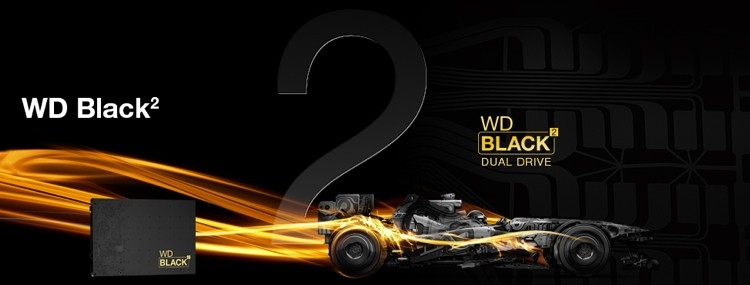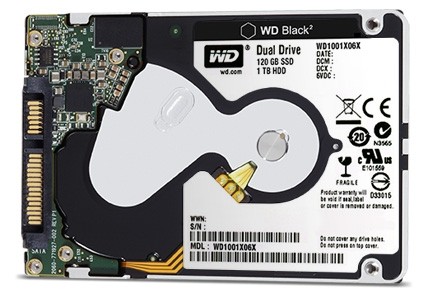
We’ve heard of hybrid drives before which combine ample storage capacity with limited amounts of NAND flash for caching purposes. The result is a nice speed bump but not quite the same as an actual SSD. Today Western Digital is introducing its own twist on that concept with what they claim is the “world’s first” dual drive solution, fusing individual 120GB solid-state and 1TB 5400rpm mechanical drives into a single 2.5-inch package.
The Black^2 will be seen as two separate drives on your system, even though they share the same SATA 6Gb/s connector -- by default only the SSD portion is usable but WD supplies a USB drive with drivers to make the hard drive portion accessible as well. There’s no caching involved so users can decide what’s stored where.
According to Matt Rutledge, senior vice president of the Storage Technology business unit, they decided to go this route based on feedback from customers asking for more control of where they store their data. The company’s line of solid state hybrid drives will still be available for those who prefer caching, and of course, there’s third party caching software you could use with the Black^2 for your own Fusion Drive style solution.

In terms of performance Western Digital claims up to 350MB/s read speeds and 140MB/s write performance. That’s certainly a step up from a traditional hard drive, but not on par with today’s high end SSDs.
But Western Digital isn’t interested in going after the performance crown with the Black^2. Instead, this is squarely aimed at the laptop market where space for components is getting increasingly cramped and users or OEMs often need to pick between speed or space. Western Digital wants to do away with that for $299.
The Black^2 dual drive will be available online directly from Western Digital and several retail partners. The company is backing these with a 5 year warranty which is quite uncommon for consumer SSDs.
https://www.techspot.com/news/54799-western-digital-unveils-120gb-ssd-1tb-hdd-dual-drive.html